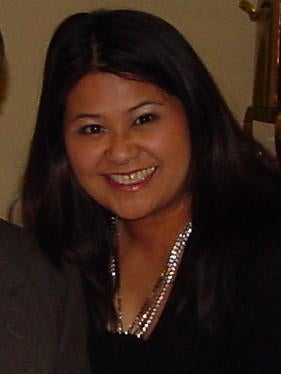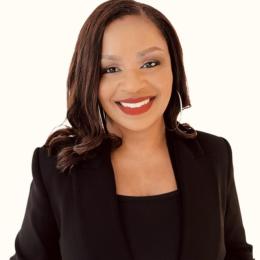
As a part of an ongoing series to celebrate the ACC Docket’s columnists, ACC Docket’s editor in chief, Tiffani Alexander, goes beyond the column to discover how they started their careers in law and what they’ve learned along the way.
In her latest Columnist Q&A piece, Alexander talks to Maryrose Delahunty about the evolution of in-house practice and tips for the aspiring general counsel of a small companies.
Maryrose Delahunty

Title: VP & GC of Invocon, Inc.
ACC Docket Column: Small Law
First Job in the Legal Profession: VP & GC
First In-house Position: VP & GC
Q&A:
ACC: Why in-house?
Maryrose: When I graduated from law school, the job market was very competitive. I interviewed with courts, firms, and even the Houston DA’s office while waiting for my bar results. Then the president of my current company, where I was working as controller said to me: “Let’s play ‘Let’s Make a Deal.” Twenty plus years later I’m still here.
ACC: What do you know now that you wish you knew during your first in-house position?
Maryrose: I wish I had the Docket article “GC Rules: Over 350 Things I Wish I’d Known My First Year as General Counsel” as a resource at the time. Although I had joined ACC (ACCA at the time), I don’t think I realized the value of the resources and community that ACC provided. For those getting their first in-house job now, ACC membership and its resources should be required.
ACC: Many things have been written and said about the “evolution of in-house practice” with the role changing immensely over the years, and continuing to evolve daily. What has led to this evolution?
Maryrose: Based on what I have observed, in-house counsel are being asked to crossover more into making business decisions, and blurring the role between advisor and decision–maker. C-suite executives are asking legal to step outside of the advisory role, and help the business determine what risks the company should take. This places in-house attorneys in somewhat problematic positions, given the unique requirements placed on our profession by the Rules of Professional Responsibility. The emphasis is now on the legal department heading up, or being integrally involved with, ethics and compliance. Trained to be risk-averse, it goes against the nature of the profession to advise someone else to actually take a calculated risk.
In my opinion, the desire of company executives for legal to share in the decision-making responsibility and accountability is a result of the Enron era. Executives want to make sure someone else’s skin is in the game. The problem with this mindset, again, is that in-house counsel are not trained to make these decisions. If executives want company attorneys to make these types of decisions, then they need to change their job descriptions and increase their salaries.
ACC: Where is the in-house profession excelling, and in what areas could change be made?
Maryrose: I think legal departments are getting better at working integrally with their organizations. As I review and negotiate agreements with other companies, I am usually dealing with contract professionals more than attorneys. Based on the ease of the negotiations, it appears as though in-house attorneys are making more of an effort to draft agreements outside of their legal silos, and provide internal mechanisms, which give both flexibility and guidance to the companies’ frontline negotiators.
ACC: What does the future of in-house practice look like?
Maryrose: I envision an even greater blending of legal and business roles for in-house attorneys. With the advent of increasing concerns over cybersecurity (I see multiple newsfeeds a day on this), and the exponential increase in government regulations, more and more in-house practice is going to be dedicated to cybersecurity and compliance related issues. To be able to effectively advise on these issues, in-house counsel will need additional training in order to have a working understanding of IT and technical issues related to cybersecurity.
ACC: As general counsel of Invocon – a company operating in the technology industry – what keeps you up at night?
Maryrose: Keeping up with the myriad of government regulations going into effect literally every month and personnel management.
ACC: What’s the one thing about your job that’s most challenging, and on the flip side, the most rewarding?
Maryrose: The most challenging part of my job explaining the legal concepts and concerns to the non-lawyers with whom I work. As I evaluate our actions, I am thinking 10 and 20 moves out, in addition to considering all the possible outcomes. The non-lawyers are only concerned with dealing with their current issue. I have to look at the entire potential roadmap and act accordingly. The most rewarding part has been realizing how much I have grown in my own abilities, as well as being part of growing an organization from the ground up. Additionally, something else I didn’t expect: the cultivation of long-term, professional relationships with customers. Knowing that the customer representatives with whom I interact have confidence in the company because they have confidence in me and how I work provides a great deal of satisfaction to me.
ACC: What advice do you have for those considering in-house practice, and to take it a step further, for those working in-house who aspire to the GC role?
Maryrose: Create a written plan with goals, research the position, get advice and information from those already doing what you want to do, write out actions to take, and execute those actions. This sounds simple, but it seems as few of us follow a systematic approach to our careers. Lately, I have become a huge advocate of personal development and applying business strategies to personal goals. If someone is considering in-house practice, they should start out with a list of what he/she really wants in their job including travel, hours, income, etc. Next gather information from other in-house attorneys at all levels to determine if the lifestyle and work of in-house counsel is what you truly want. I don’t think we really research what we want effectively enough in our personal lives.
For those aspiring to be GC, I would advise them to do that same, but also add the following:
- Volunteer to work for or with the current GC on projects.
- Work diligently to understand all aspects of the company.
- Look into opportunities to work with different areas of the company if this option is available.
- Make sure company executives know your work, and your face.
- Earn a reputation for integrity, sincerity, hard work and diligence.
- Develop your personnel and communication skills, and pay for this training yourself if necessary.
- Spend time and money to invest in your own personal growth.
- And lastly, but equally important: Heavily network with other in-house counsel.
Getting to Know Maryrose Delahunty
What book are you currently reading?
I usually juggle three to four books at a time. My current reading list includes:
- Better Than Before by Gretchen Rubin
- One in a Million by Priscilla Shirer
- The Checklist Manifesto by Atul Gwande
- Dog Will Have Its Day by Fred Vargas
What’s next for you?
I have enjoyed being a columnist for the ACC Docket for the last six years and I would love to move into being an author, as well as a columnist. As of late, I have also been flirting with the idea of doing more public speaking on applying business principles to personal growth.
What advice did you learn in law school that you still apply today?
Research more than you think you need to.
Name one person, living or dead, you’d love to have a cup of coffee with?
I would love to be able to have coffee with my mother. She passed away a few years ago. I would give just about anything to be able to tell her "thank you for everything." And get her advice again. She was the strongest, smartest, wisest, most resourceful woman I have ever known and she would have made an amazing attorney. I consider both my parents to be amazing gifts from God. In the slightly altered words of Isaac Newton: “If I have achieved any success in this life, it is by standing upon the shoulders of giants.” At under 5 feet tall, my mom stood taller than anyone I know.




